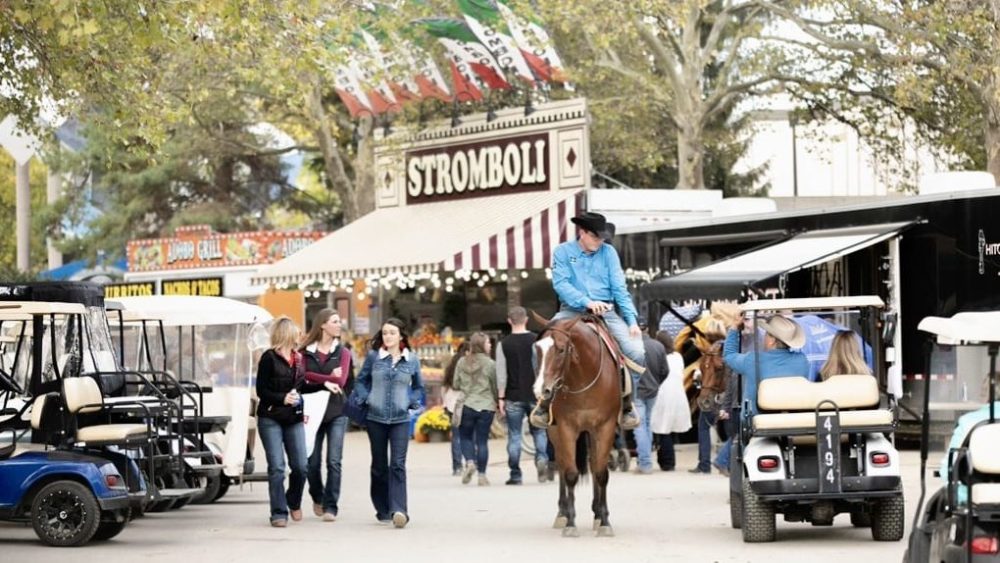We show horses because we love it. We enjoy the challenge of competition, the thrill of victory, and the joy of spending time with horses and friends. But despite all the wonderful elements of showing, it can be physically and emotionally exhausting. That horseshow hangover is no joke.
We spoke to top amateur competitors and consulted psychological reports to compile some helpful tips for keeping sane during long, grueling shows.
Have a Schedule
While horse shows tend to run on their own time, having some semblance of a daily schedule or routine helps curb long shows’ mental and physical exhaustion.
According to Northwestern Medicine, a Division of Northwestern University, setting a schedule or routine “leads to improved mental health, more time to relax, and less anxiety” during times of high stress.
Brad Brenner, Ph.D., co-founder of Therapy Group NYC, says that having a schedule or routine can prevent burnout, which causes people to avoid what initially gave them fulfillment. “The gradual accumulation of stress leads to burnout, which can cause mental and emotional exhaustion, poor interpersonal relationships, and lost productivity.”
 AQHA Exhibitor Tali Terlizzi (Jason English Show Horses, Hutchinson Performance Horses, and Highpoint Performance Horses) takes long shows one day at a time. She will coordinate with her trainers each day to set a general plan for the day that allows her to plan when she will need to be ready to show, practice, eat, or even sleep at odd times to allow for late night/early morning lessons.
AQHA Exhibitor Tali Terlizzi (Jason English Show Horses, Hutchinson Performance Horses, and Highpoint Performance Horses) takes long shows one day at a time. She will coordinate with her trainers each day to set a general plan for the day that allows her to plan when she will need to be ready to show, practice, eat, or even sleep at odd times to allow for late night/early morning lessons.
“I like to keep planning as stress-free as possible, allowing my trainers to tell me their availability,” Terlizzi says. “At shows like the NSBA and the Congress, most of the time, we will do a middle-of-the-night ride the night before I show. Usually, my trainers will coordinate my horses to bring them out for me, or I’ll let them know when I will be out so we can meet up.”
Terlizzi tries to plan her time to “kill two birds with one stone” where possible and allow for more stress-free integration of her time between multiple barns.
Get Away from the Barn
Horse shows can be all-consuming, which is fine for a few days. However, during longer shows that last over a week, getting away from the grounds is essential, even for a short while.
“Breaks can improve our moods, overall well-being, and performance capacity,” says Charlotte Fritz, Ph.D., an associate professor in organizational psychology at Portland State University. “Taking regular breaks helps us to be more resilient when stressors arise, and they function as an intervention to help us deal with the daily grind.”
According to William S. Helton, Ph.D., a professor of human factors and applied cognition at George Mason University, “Focusing our attention for too long can wear us out. Prolonged work seems to be depleting. You start to fade out, and there’s a decline in performance. We don’t know exactly what in the brain gets depleted, but when you do a cognitively demanding task, it operates as though there’s a ‘mental fuel’ that gets burned up.”
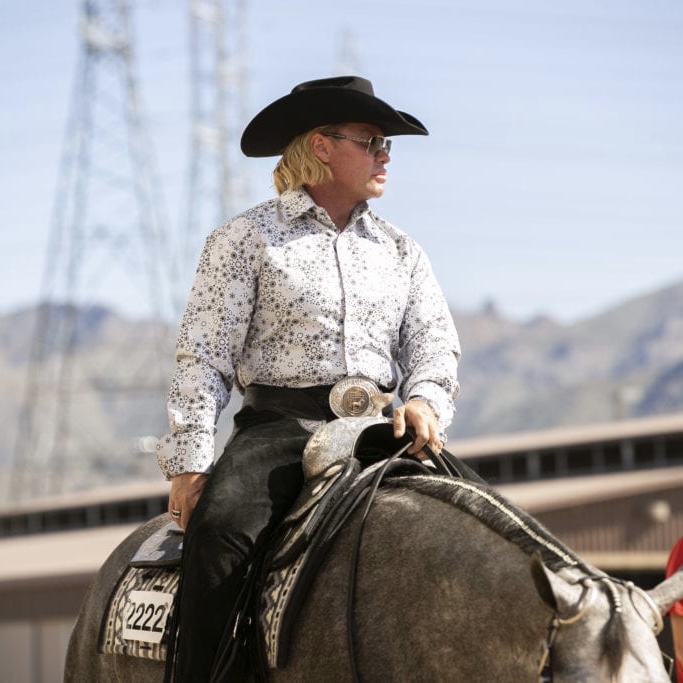 Dr. Helton published a study in Applied Cognitive Psychology, which found that taking breaks and stepping away from intense tasks leads to greater performance, patience, and overall attention span.
Dr. Helton published a study in Applied Cognitive Psychology, which found that taking breaks and stepping away from intense tasks leads to greater performance, patience, and overall attention span.
AQHA Exhibitor Kent Ray Taylor (KRT Show Horses) admits that, while it may seem tedious at first glance, he takes solace in enjoying alone time at big shows. He appreciates taking breaks to read a new murder mystery book, work out at a local gym, go out to eat, or find a nearby spa to get a mani/pedi. “Horse shows can be stressful and overstimulating, and while I enjoy riding and socializing with friends, sometimes I need to get away and be alone, so I can be more present when showing.”
Eat Enough & Eat Healthy
We’re all guilty of it – while competing at shows, we often don’t make time for a proper meal, and, if we do, it tends to consist of junk food. While this can be a fun part of the show experience during a weekend show, it can negatively impact our performance during longer shows.
The Academy of Nutrition and Dietetics claims that we must consider carefully what, when, and how much we eat while engaging in athletic feats. They recommend regularly eating throughout the competition while giving your body 2-3 hours to digest a full meal before significant physical exertion. If you cannot accommodate that, small portions of healthy carbs and grains can be consumed 30mins before the competition to help with energy and focus.
The Academy recommends that meals “be hearty and include foods from as many food groups as possible, such as whole grains, lean sources of protein, fruit, vegetables, and low-fat dairy.” They recommend avoiding “fatty foods, [which] slow digestion, [and are] not ideal for an athlete facing a competition. Greasy, fried foods and fatty desserts are filling and may leave [you] feeling tired, sluggish, and irritable.”
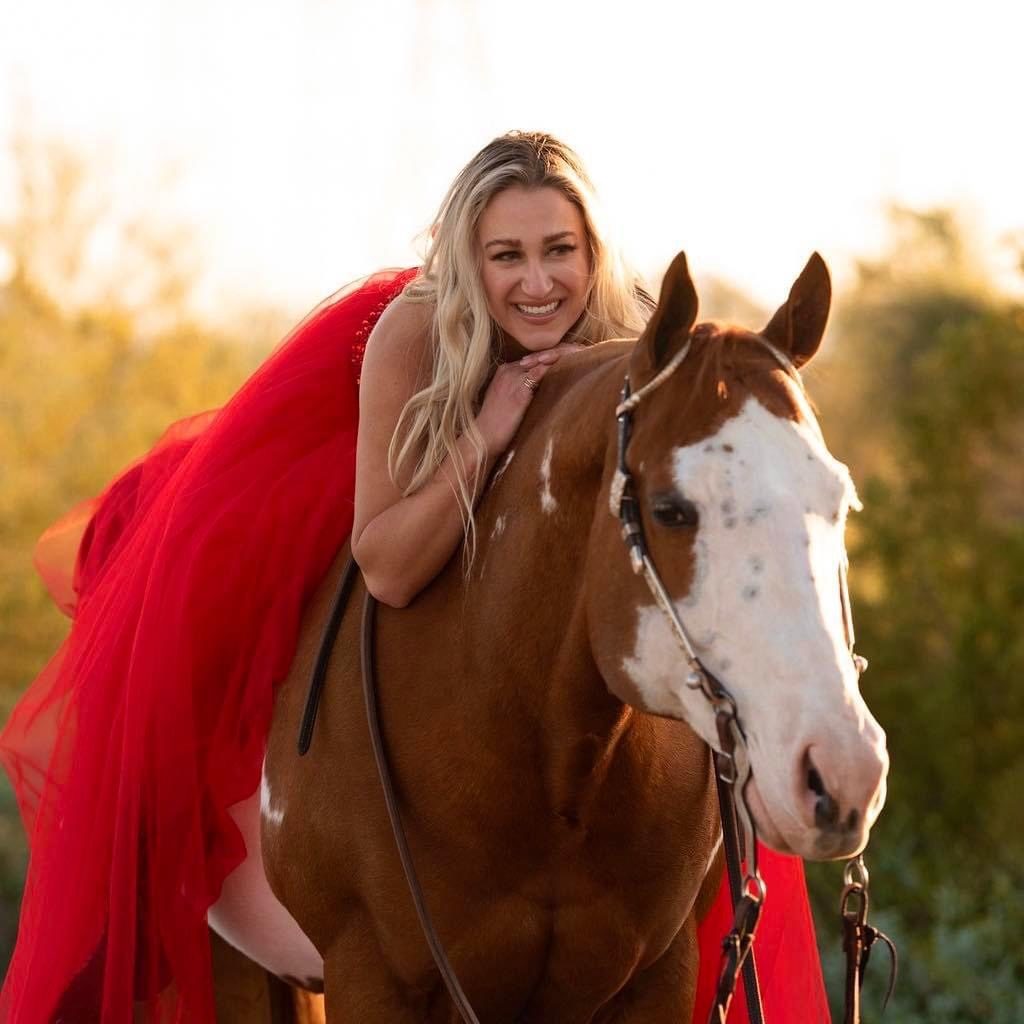 APHA Exhibitor and fitness trainer Emily Tuma (17HandsFit) says, “It’s easy to grab the closest thing when you are feeling ravenous post ride; usually at a horse show, that means chips, donuts, pizza, or something of that nature.”
APHA Exhibitor and fitness trainer Emily Tuma (17HandsFit) says, “It’s easy to grab the closest thing when you are feeling ravenous post ride; usually at a horse show, that means chips, donuts, pizza, or something of that nature.”
Tuma says, “The best way to ensure you do not reach for junk food is to have more nutrient-dense food options. For example, I have Greek yogurt, nuts, and jerky with me at shows so that, when I’m hungry, it’s just as easy to reach for those healthier options. In addition, I have pre-made chicken to take to the show and other meal-prepped options if I can. Otherwise, I will either Uber eats healthier meal options or go myself to a local salad or sandwich shop.”
Make Sleep a Priority, Not an Afterthought
Due to the somewhat erratic schedules of big shows and practice availability, it can often be challenging to ensure you get adequate sleep along the way. However, failure to do so can be one of the most detrimental factors to overall mental health and class performance.
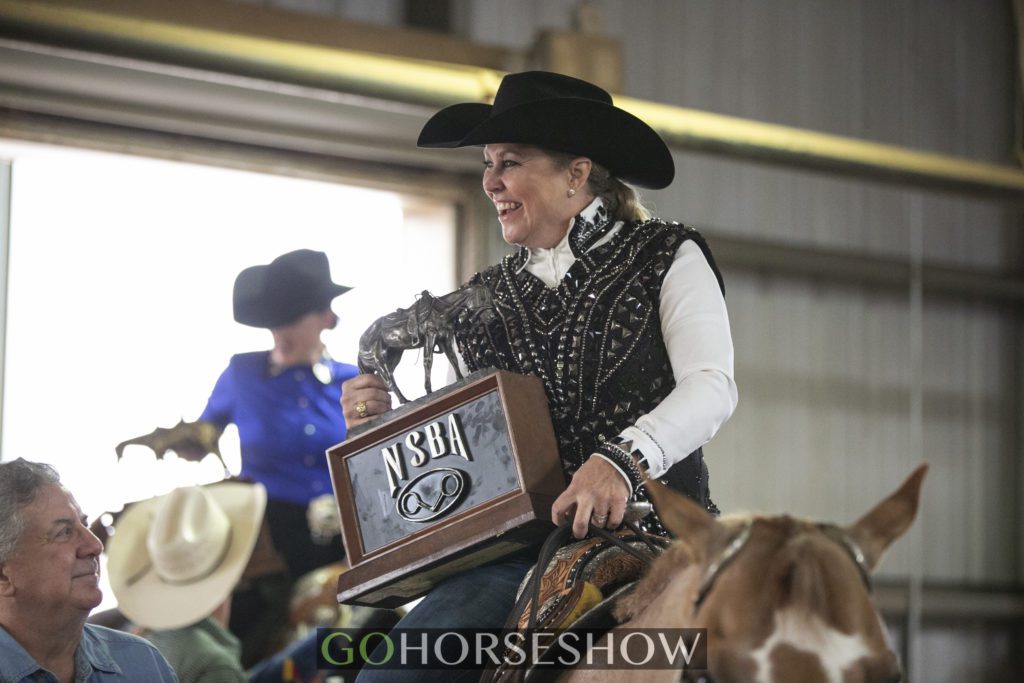 According to Erica Jansen, Ph.D., a nutritional epidemiologist at the University of Michigan, “Contrary to our quiet physical state, the brain is very active during sleep, carrying out many important functions. Sleep is essential to every process in the body…sleep and mental health go hand-in-hand. Good sleep is essential for maintaining our baseline mental health, as one night of sleep deprivation can dramatically affect the mood the next day. Chronic exposure to poor sleep quality is associated with depression, anxiety, and other health conditions.”
According to Erica Jansen, Ph.D., a nutritional epidemiologist at the University of Michigan, “Contrary to our quiet physical state, the brain is very active during sleep, carrying out many important functions. Sleep is essential to every process in the body…sleep and mental health go hand-in-hand. Good sleep is essential for maintaining our baseline mental health, as one night of sleep deprivation can dramatically affect the mood the next day. Chronic exposure to poor sleep quality is associated with depression, anxiety, and other health conditions.”
AQHA exhibitor Ann Woodruff (Round Meadow Ranch) makes time to get rest so she can be on top of her game at significant shows. “I know myself and need 7-8 hours of sleep to recharge for the next day. So I try to have a routine while on the road at horse shows, especially at the end of the day. I have dinner, a shower, walk my pups, and have lights out early enough to wake up refreshed and ready to tackle the next day. And sometimes I may even sneak a nap in.”
Don’t Forget to Horse Around
Big shows are often the culmination of months and years of hard work. Practices can be intense, classes are huge, emotions run high, and the stress is palpable. While it is essential to take these shows seriously, taking them too seriously can be detrimental to performance and overall mental health.
According to Clifford Lazarus, Ph.D., “goofing off is good to do!” Indeed, “psychological studies show that a certain degree of goofing off is good for you and will make you more, not less, productive.”
Dr. Lazarus advises that people aim to work smarter and not harder. Having fun amid high-stress competitions is not only beneficial to one’s emotional and physical health, but it tends to benefit overall performance. Essentially, “when you feel good, you can do good.”
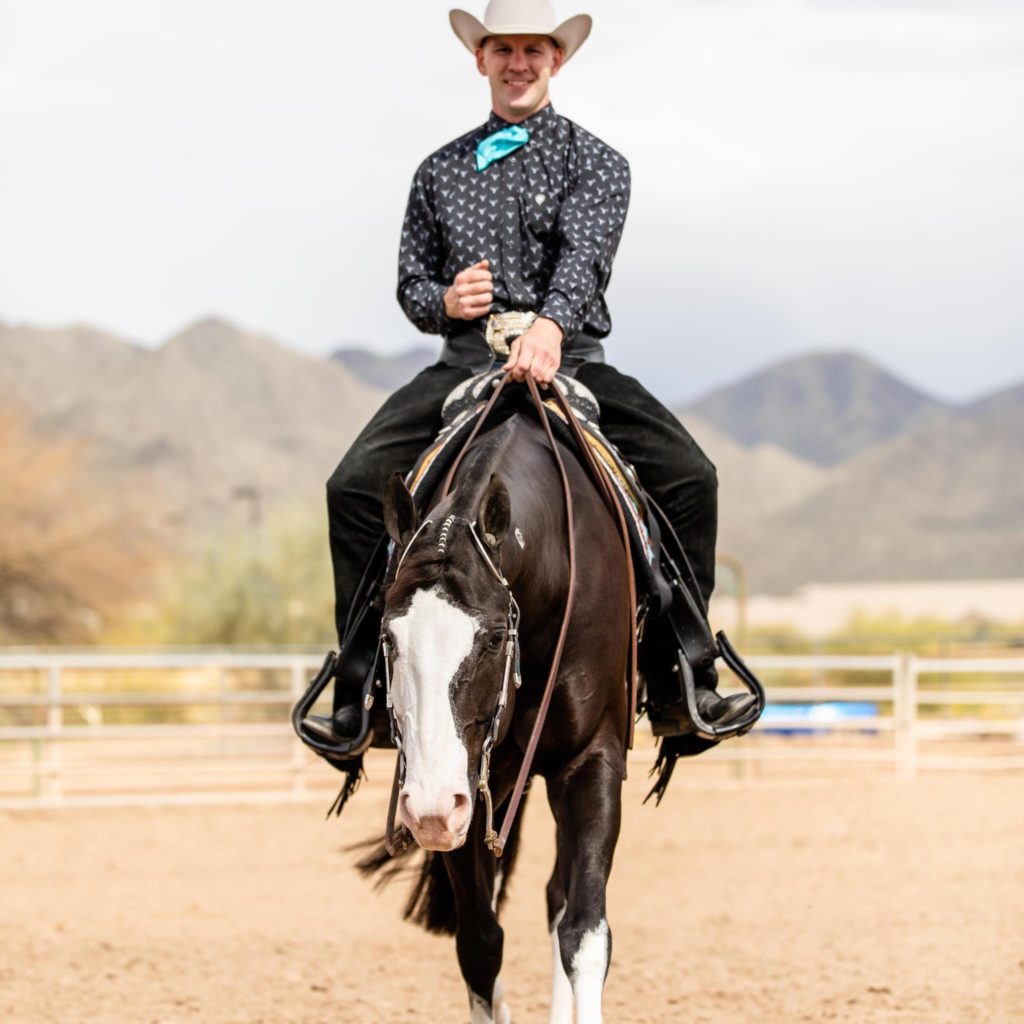 APHA exhibitor Scott Cooper (Premier Performance Horses) creates funny TikTok videos about horse showing to inject fun and humor into his show experience. “I think many of us take horse shows very seriously, and that pressure on ourselves increases even more at bigger or national shows. But I think we have to remember that we do this for fun. And we can’t take ourselves too seriously,” Cooper says.
APHA exhibitor Scott Cooper (Premier Performance Horses) creates funny TikTok videos about horse showing to inject fun and humor into his show experience. “I think many of us take horse shows very seriously, and that pressure on ourselves increases even more at bigger or national shows. But I think we have to remember that we do this for fun. And we can’t take ourselves too seriously,” Cooper says.
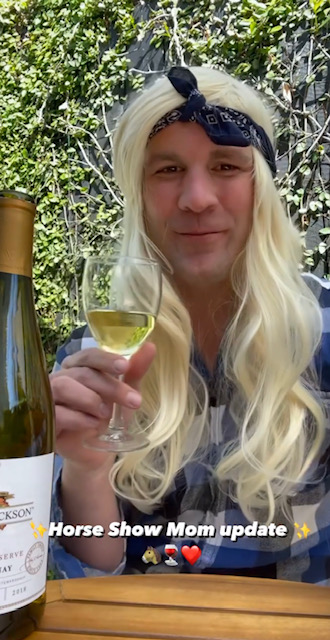 “And for me,” Cooper adds, “I love making my funny videos so I can help the horse community connect and get a laugh out of our little world. It’s like our little inside jokes, and it’s fun when we can all relate. The friendships I have made in the horse world are more important than any award, and I always hope my silly videos can make someone smile. It’s my way of bringing more positivity and fun to our little community, and sometimes I need to make fun of myself to help alleviate my nerves and shake off my bad rides.”
“And for me,” Cooper adds, “I love making my funny videos so I can help the horse community connect and get a laugh out of our little world. It’s like our little inside jokes, and it’s fun when we can all relate. The friendships I have made in the horse world are more important than any award, and I always hope my silly videos can make someone smile. It’s my way of bringing more positivity and fun to our little community, and sometimes I need to make fun of myself to help alleviate my nerves and shake off my bad rides.”
***
Remember that we compete in big shows at a high level because it’s fun. However, if you don’t take care of yourself and your physical and mental health during these grueling shows, you will take the fun out of the event and are more likely to experience burnout.
So, set a schedule, take mental breaks, eat well, get plenty of sleep, don’t take yourself too seriously…and love your horse! It’s the recipe for success.


